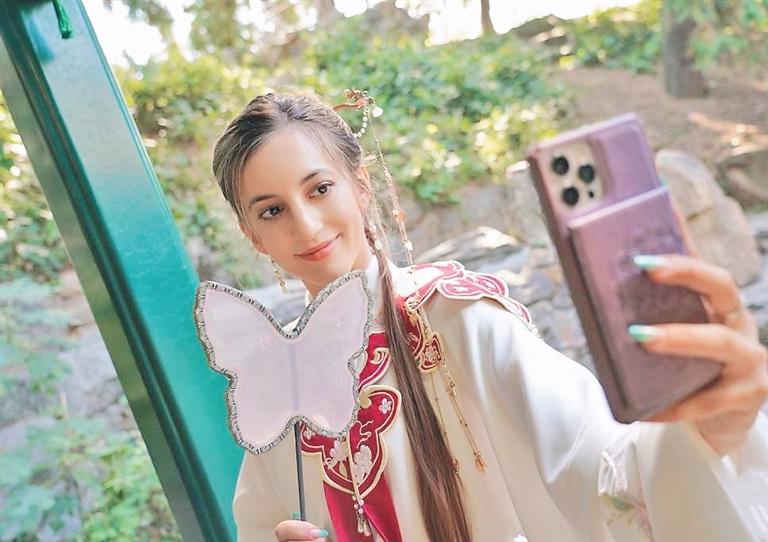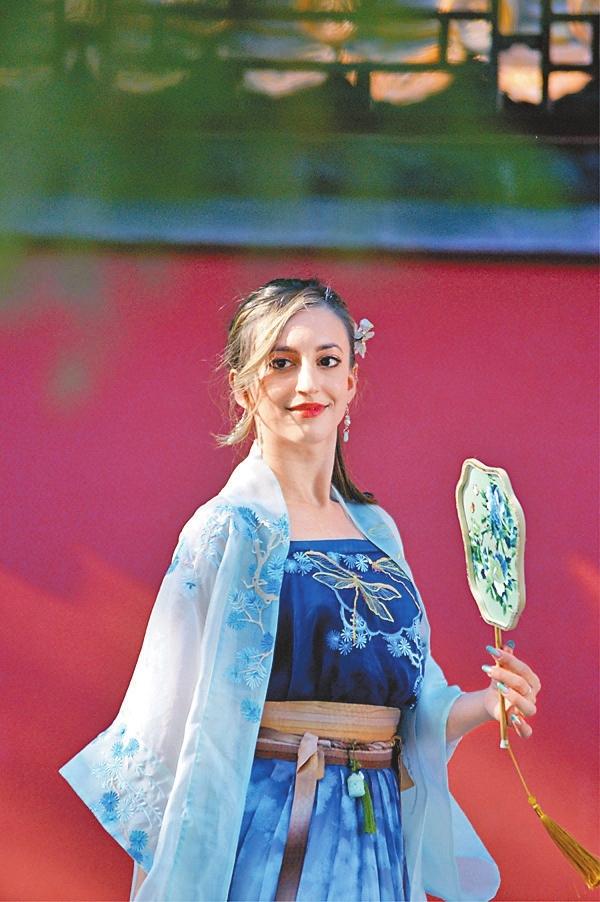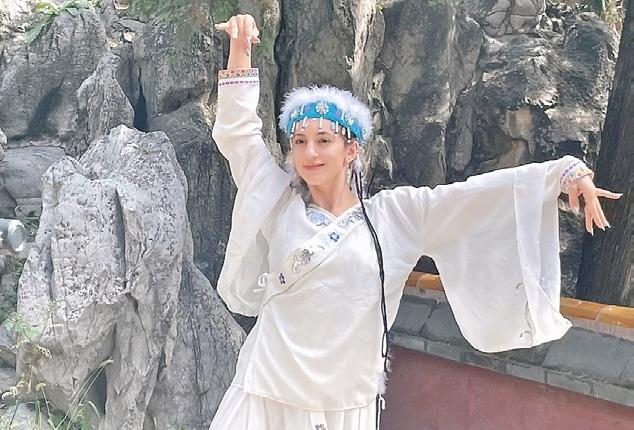



Editor’s note Hope for the China-U.S. relationship lies in the people, with grassroots connections as its foundation. While the two countries have experienced ups and downs in their bilateral ties, it is the enduring friendship between their peoples that has consistently infused warmth and momentum into this relationship. The page is presenting a series of stories about Americans who deeply appreciate Chinese culture and actively work to bridge the differences between the two countries. FOR JongMay Urbonya, Hanfu is more than traditional Chinese attire — it’s a bridge between cultures and a window into China’s rich history. At 30, the American cultural influencer has captivated nearly half a million followers online with her passion for Hanfu and love for Chinese traditions. However, her journey is deeply intertwined with the story of her parents, who first planted seeds of cultural appreciation long before she discovered her connection to China. Urbonya was born in 1994 in Dalian, a coastal city in northeastern China where her parents, originally from Wisconsin, worked as English teachers. They arrived in China in 1987, during the early stage of the country’s reform and opening-up, motivated by a belief in the power of global understanding. “My parents often reminisced about how the hospitality and kindness of the people in Dalian left a lifelong impression on them,” Urbonya said, adding that “it was the Chinese Lunar New Year when my parents first arrived, and despite being strangers in a foreign country, they were warmly invited to celebrate with local families.” The couple quickly became embedded in their community, learning from the locals and contributing to the cultural exchange. JongMay’s father also portrayed Edgar Snow in a 1994 television series adapted from the book “Red Star Over China,” in which he visited revolutionary landmarks such as Yan’an. “My dad always told me that those years in Dalian were some of the most transformative of his life,” Urbonya reflected. Inspired by these experiences, he wrote a song titled “I Am Chinese,” celebrating the cities they had traveled to and his deep connection to the country. The family’s bond with Dalian was so profound that they gave Urbonya’s elder sister the Chinese name “Dalian” to honor the city and its people. Urbonya was named after the Chinese pronunciation of “China” and “America.” “My parents’ love for China shaped the environment I grew up in,” Urbonya said. “Even after we returned to the United States when I was 6, their appreciation for Chinese traditions continued to influence me.” Urbonya recalled evenings during her childhood watching historical Chinese dramas and films with her parents. “I didn’t understand much Chinese back then, but the stories and historical settings captivated me,” she said. Her parents also encouraged her to learn Mandarin and connect with Chinese friends. This upbringing ignited Urbonya’s curiosity about her Chinese roots, eventually leading her back to the country. “I wanted to experience China through my own eyes,” said Urbonya, fluent in Mandarin. “My parents taught me to embrace curiosity and cultural exchange, and I hoped to carry that legacy forward.” By the time Urbonya arrived in Beijing during high school and later in college, majoring in Chinese dance, the country was undergoing a revival of ancient traditions, with younger generations embracing Chinese heritage in modern ways. From the growing popularity of Hanfu to a resurgence of interest in classical Chinese arts like calligraphy and poetry, the revival provided Urbonya with the perfect backdrop to deepen her connection to China. Over the years, her passion for Hanfu, classical poetry, and calligraphy grew into a vibrant career. Today, she creates content on social media platforms like TikTok, Bilibili, and Xiaohongshu, showcasing different facets of Chinese culture to a global audience. “Hanfu reflects China’s rich history and craftsmanship,” she said. “It’s a way to connect with the past while inspiring the present.” Her father’s creative spirit and her parents’ philosophy of cultural exchange inspire her current work. From blending traditional Chinese crafts with modern contexts to showcasing dialects and local markets, Urbonya continues to promote understanding between cultures. “Their stories about living in China during the 1990s — a time when material life was less abundant but human connections were rich and genuine — resonate deeply with me,” she said. “I see their values in everything I do.” “I want to use my experiences to build meaningful bridges,” she said. “Through Hanfu and other traditions, I’ve learned that embracing different cultures makes us all richer.” (Xinhua) | 
